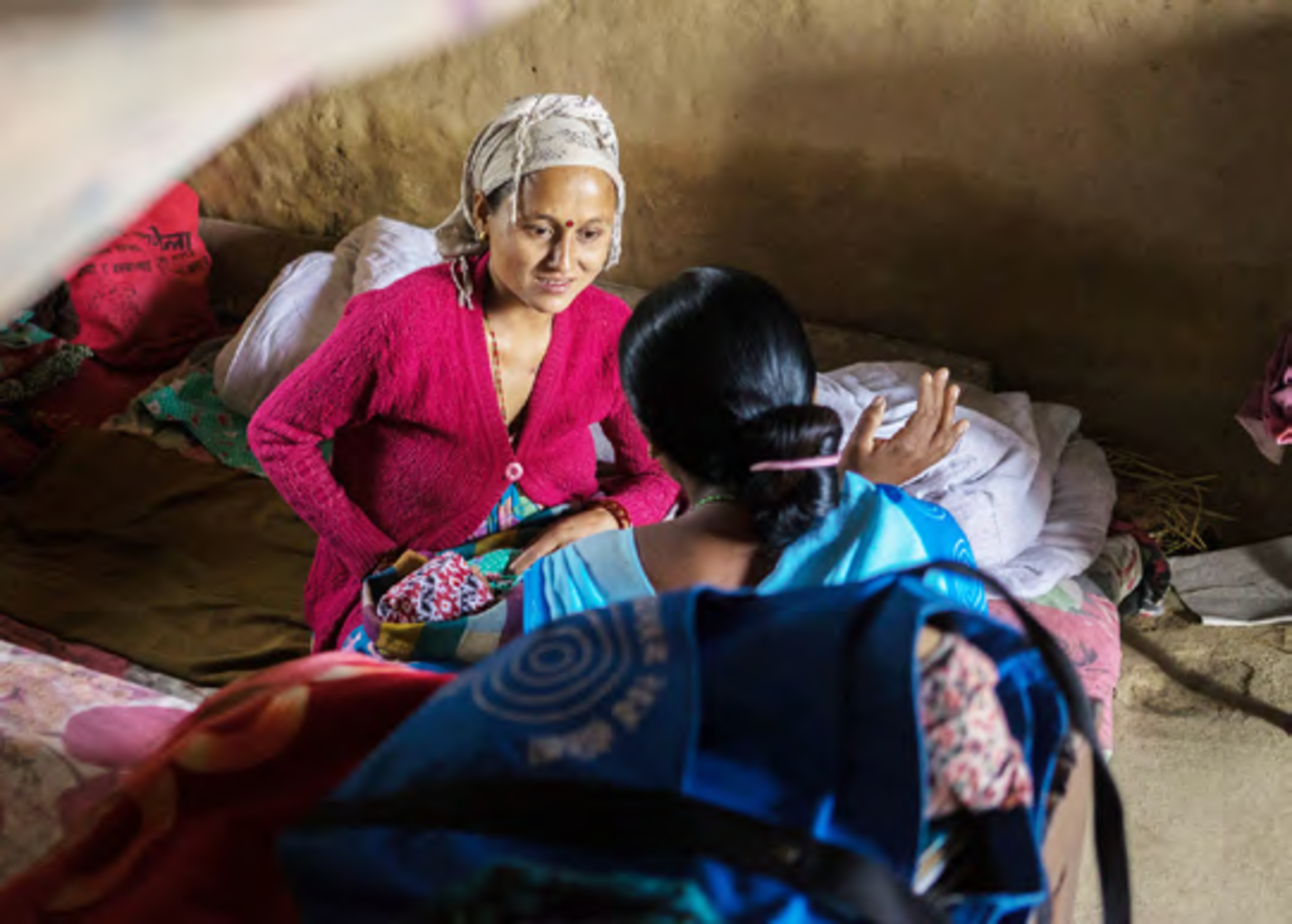What does it mean to provide respectful maternal and newborn care? A new Compendium, developed by the World Health Organization (WHO), the Human Reproduction Programme (HRP) and partners, brings together the most up to date information for providing respectful maternal and newborn care. From policy-making to clinical settings and community services, this compendium outlines actionable steps to uphold the rights, needs and preferences of women, newborns, parents and families.
To better understand its real-world impact, we spoke with Dr Chibugo Okoli, Deputy Country Director, of Jhpiego Nigeria. As part of the compendium development process, Dr Okoli was engaged to provide user insights, drawing on her experience of implementing respectful care and the challenges and changes that come with it.
Q: When have you seen that respectful care truly make a difference?

A: I recall a situation from early 2018, when I was working on a donor-funded maternal, newborn and child health project in a government health facility in one of our states in Nigeria. During our visit, I discovered that a woman who had given birth just the day before was detained in the facility because she couldn’t afford to pay for the birth and her overnight stay. The staff had been unable to contact her husband or any relatives, and as a result, she was not allowed to go home.
Before leaving, I spoke with the matron in charge. She explained the situation and told me that, unfortunately, this was a regular occurrence. However, she also shared something hopeful: she had recently attended a training on respectful maternity care and was now determined to address this issue with the management of the health facility. Motivated by what she had learned, she had already begun discussions with management to explore more respectful approaches to find solutions.
When I followed up the next day, I was relieved to learn that the woman had been discharged. Even more promising was that the matron was actively working with facility leadership to introduce more respectful policies that took into account the stress this could have on women.
Q: Have you faced challenges implementing a respectful care policy? How did you overcome them?

A: Over the years, I’ve been deeply involved in building the capacity of health workers across various aspects of maternal, newborn and child health care. This includes participating in supportive supervision of health facilities and staff. One of the most persistent challenges I’ve encountered is changing attitudes among health workers, particularly towards pregnant women who may have lower levels of education or come from lower socio-economic backgrounds.
These biases that health workers may have can be difficult to shift, but it’s important to understand that they don’t exist in isolation. Often, the root causes of mistreatment lie in the broader working environment, including the policy structures. Health workers themselves are frequently under pressure, facing systemic issues that shape how they engage with women and newborns.
Achieving respectful care, therefore, requires more than individual behaviour change; it demands a multi-faceted focus on ensuring a supportive policy environment, addressing power and gender hierarchies, and promoting a health system environment that ensures access to quality commodities and infrastructure so health workers are able to provide high quality and respectful maternal and newborn care.
Q: How will the newcompendium make an impact?
 A: The compendium is a guide that builds on the most current evidence to support maternal, newborn and child health programme managers and health workers at facility level to be able to understand, develop and implement respectful care for mothers and newborns at various levels of the health system, including facility level.
A: The compendium is a guide that builds on the most current evidence to support maternal, newborn and child health programme managers and health workers at facility level to be able to understand, develop and implement respectful care for mothers and newborns at various levels of the health system, including facility level.
It should help programme managers, health workers and health facilities identify the underlying drivers of mistreatment and respectful care, and to build capacity to design and monitor interventions for respectful care based on their context.
Chibugo Okoli’s reflections remind us that respectful maternal and newborn care needs to be embedded and integrated into policy and practice. Integrating respect and dignity into care requires intentional action at every level of the health system. Whether you are a health worker, programme manager or policy-maker, this compendium offers practical tools to help every woman and newborn receive care that respects their rights and promotes a positive experience of care.

/sexual-and-reproductive-health-and-research-(srh)/maternal-and-perinatal-health-(mph)/compendium-on-respectful-maternal-and-newborn-care_experts-interview.png?sfvrsn=4c7ba828_3)